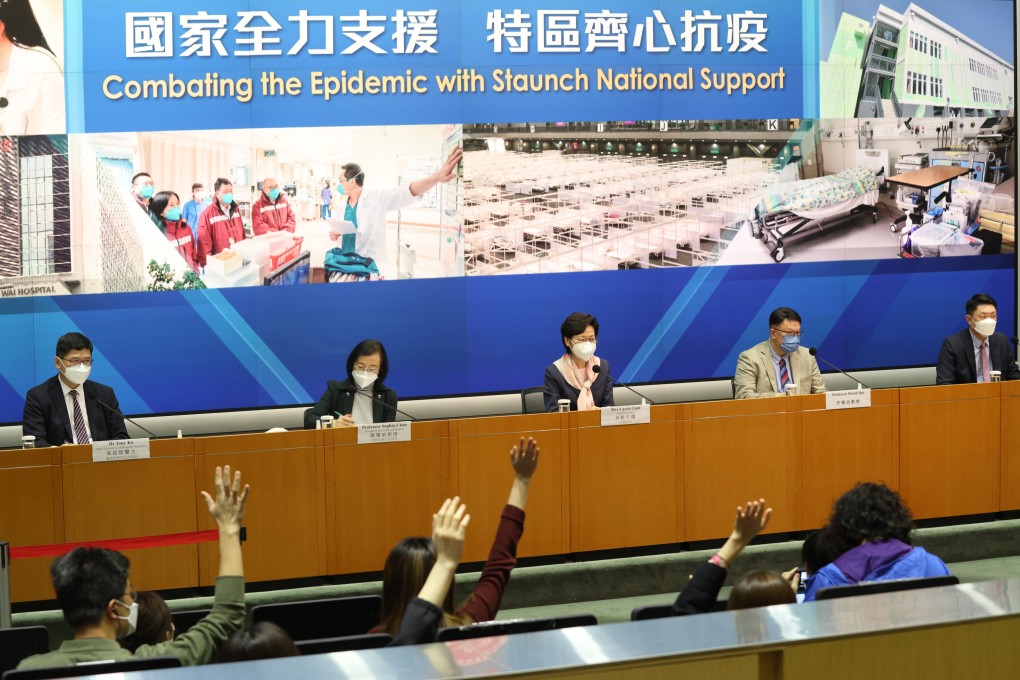Letters | Accusing reporters of ‘hate speech’ for doing their job undermines press freedom
- Raising questions during press conferences for the sake of public awareness and interest is part of the job of any journalist. There’s no ground for claiming breach of national security law

I am flabbergasted to learn that a journalist was accused of spreading hate speech simply by asking the chief executive how, if problems arose, Covid-19 patients could lodge a complaint about the care they received from mainland medical professionals in the city.
Did the reporter intend to verbally abuse or encourage violence towards any person or group with her question for Carrie Lam Cheng Yuet-ngor? Hate speech is generally related to expressions of animosity or disparagement of an individual or a group on account of a group characteristic such as race, colour, national origin, sex, disability, religion or sexual orientation.
Did the reporter’s question, asked in the course of discharging her duty, constitute a breach of the national security law? A pro-establishment group impugned her competence as a media professional, demanding that she be given the boot. Based on what evidence did she cross the red line of infringing the national security law?
The question she raised in the press conference gave the general public the opportunity to find out what to do should problems occur when receiving care from mainland medical workers. This fosters public understanding of how procedures are run, minimising the chance of unnecessary arguments and conflicts arising between patients and medical staff.